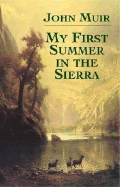Take Part in the Rusty Blackbird Blitz
Volunteers needed to map this rapidly declining species
January 29 thru February 13th, 2011
Where are the Rusty Blackbirds? The North American population of this species has plunged an estimated 85 to 99 percent over the past 40 years. To help pinpoint where the remaining birds can be found, volunteers are needed for the third annual Rusty Blackbird Blitz taking place January 29 through February 13. This is when Rusty Blackbirds become easier to find and the population is relatively sedentary. Volunteers can report the presence or absence of Rusty Blackbirds at http://www.ebird.org/. Data gathered during the blitz will be used to create a map of wintering Rusty Blackbird "hot spots" and will help focus research, monitoring, and conservation efforts.
The eBird program is led by the Cornell Lab of Ornithology and the National Audubon Society. The blitz is coordinated by the International Rusty Blackbird Technical Working Group at the Smithsonian Migratory Bird Center along with the Cornell Lab and Audubon.
"Blackbirds have been in the news a lot lately due to the mysterious death of roughly 5,000 birds in Arkansas," said eBird leader Brian Sullivan. "Although Rusty Blackbirds were not directly involved in that incident, they face even greater challenges including loss of vital bottomland forest wintering habitat across the Southeast that has led to a severe decline in the species’ numbers. The 'Blitz' will help scientists learn more about the habitat requirements and basic biology of this enigmatic species."
"Blitzers" will report the number of birds present at each location they visit, along with very basic habitat information. One hallmark of the Rusty Blackbird is its pale "staring" eyes. In late January and early February, males will appear mostly black and females will have rusty edges on their wings and body. The Rusty Blackbird spends its winters in bottomland wooded-wetlands, primarily in American midwestern and southeastern states.
For more information on identifying Rusty Blackbirds and where they might be found, visit the eBird website and the International Rusty Blackbird Technical Working Group site.
Rusty Blackbird Blitz Volunteer Opportunity
Thursday, January 27, 2011
- By Stephanie
Labels:
Volunteer Opportunities








